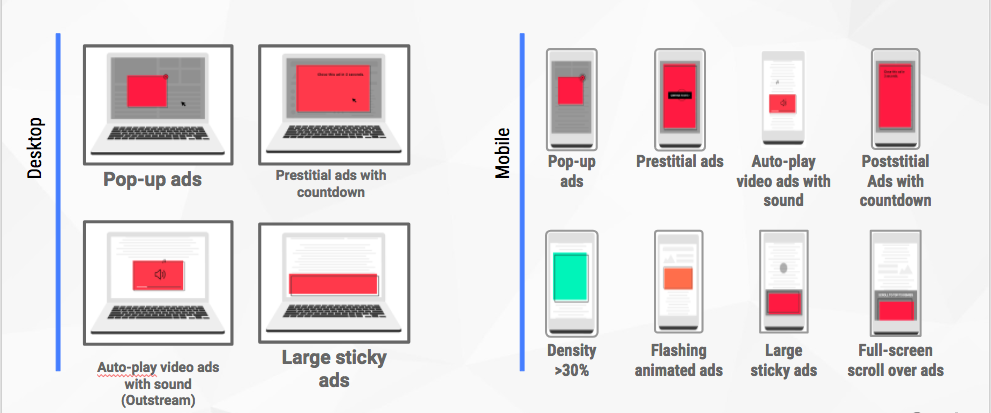Google Chrome now has a default ad-blocker
The new tool will detect and ultimately block adverts deemed in breach of guidelines.

Google’s attempts to tackle annoying adverts online have taken a step up with the launch of a new ad-filtering feature for its web browser Chrome.
The feature will block adverts that breach the Better Ads Standards set out by the Coalition for Better Ads – a group of advertising and online media companies, including tech giants – meaning adverts that are deemed too intrusive or persistent will be blocked.
Google has been laying out how the new feature will work, and the types of adverts that will be under threat, as it looks to push websites to stop relying on them.

Among the type of ads being targeted are pop-ups and those which auto-play video with sound.
Google said it will notify websites which it finds breach the guidelines and give them 30 days to make changes, only blocking adverts after that period if the issues persist.
The company said the Chrome browser will then automatically block any adverts it finds in breach of the guidelines when visited – with a notification then sent to users telling them what has happened. However, they will also give users the option to allow adverts on that site if they so wish.
The tech giant said its overall goal is not to simply block adverts, but to encourage better practice in web advertising.
“While the result of this action is that Chrome users will not see ads on sites that consistently violate the Better Ads Standards, our goal is not to filter any ads at all but to improve the experience for all web users,” the company wrote in a blog post.
“As of February 12, 42% of sites which were failing the Better Ads Standards have resolved their issues and are now passing.
“This is the outcome we were hoping for – that sites would take steps to fix intrusive ads experiences themselves and benefit all web users.
“However, if a site continues to maintain non-compliant ad experiences 30 days after being notified of violations, Chrome will begin to block ads on that site.”





